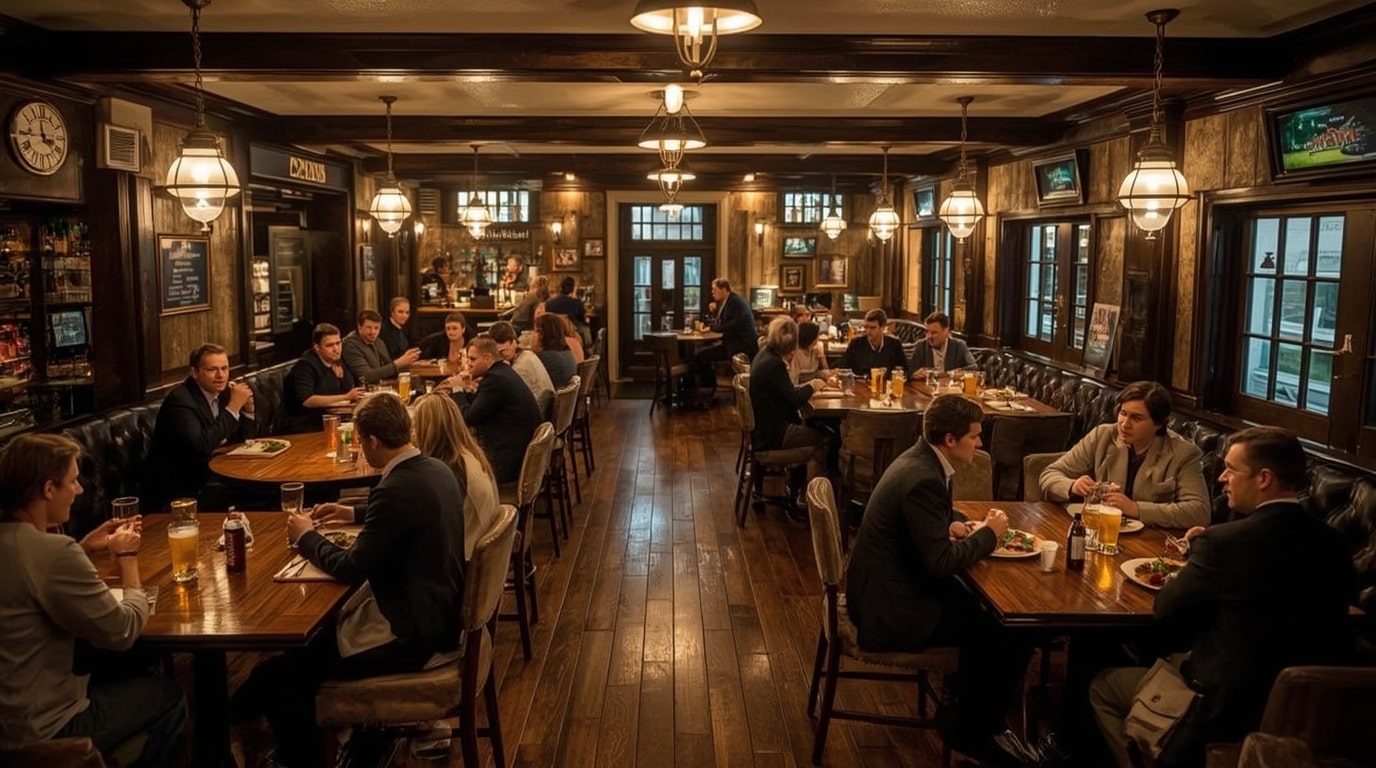
Mitchells & Butlers Share Price Surges: UK Pub Giant Beats Profit Expectations Amid 2025 Recovery
With the announcement of improved than anticipated annual profits in a boost to the UK hospitality industry, Mitchells and Butlers (MAB.L) stocks have shot up against a wider economic backlash.
The stock increased in early trading by 4.2% to 312.5p as of November 28, 2025, to lift the market capitalisation of the company above PS1.8 billion. A good response was received, especially after the FTSE 250-listed company registered strong sales growth, owing to strong consumer spending on food and drinks in the wake of inflationary pressures.
Mitchells & Butlers, which runs well-known chains such as Harvester, Toby Carvery, and All Bar One, has survived in a rough environment where costs have gone up; consumers have changed their consumption patterns.
Recent data reflect a turnaround, as the like-for-like sales increased 5.8% during the year ending in September 2025, and this exceeds the expectations of analysts. Shareholders are rejoicing at how the company is able to sustain margins due to effective operation and menu diversification, which makes it a star in the reviving pub and restaurant sector.
Strong Annual Results Fuel Investor Optimism
The pre-tax profit reported in the financial year amounted to PS198 million, which was higher than the predicted figure of PS185 million and also increased by 12% compared to the previous year.
Growth in revenue was up to PS2.6 billion, which was supported by an urban recovery and good performance in the premium brands. The success was explained by CEO Phil Urban with strategic investments in the estate refurbishments and digital improvements that have enhanced customer experiences and made operations more efficient.
This performance is compared to previous industry misfortunes when most of the operators struggled with the lack of workers and energy price surges. The value-for-money services provided by Mitchells and Butlers have appealed to the low-end market, and institutions such as the Miller and Carter steakhouses have remained, attracting more high-end customers. The outcomes are also indicative of general trends in the UK economy, as consumer confidence increases along with the decreasing inflation rates and wage increases.
Stocks have since regained 28 per cent in the first half-year, vastly beating the FTSE 250’s 6 per cent. However, based on more than five years, the stock has fallen 15% since pre-pandemic times, indicating that the sector will not recuperate completely. Peel Hunt analysts increased their target price to 350p, in view of the good balance sheet of the company and the possibility of further margin increase.
Managing Pressures on Cost and Market
Although the figures are encouraging, Mitchells & Butlers is not spared from the challenges that it is facing. The company noted increased costs on the minimum wages and supply chain shocks as risks in 2026. Adjusted operating margins rose to 7.6; however, executives warned of a further squeeze in profitability in the face of sustained cost inflation, unless accompanied by price changes.
UK retail and hospitality stocks have performed unequally in the broader market environment. When Mitchells & Butlers is booming, its rivals, such as Whitbread and JD Wetherspoon, have been overwhelmed by less pressure in the suburbs. The recently announced budget initiatives by the government, such as the business rates change, would offer some relief, and they could contribute an estimated PS20 million to the bottom line of the sector in a year.
The company is also on its way to recovery by paying dividends, which is an ingredient in investor sentiment. Having halted dividend payments during the pandemic, Mitchells & Butlers announced a final dividend of 2.5p per share, which offers a yield of approximately 1.6% at the present price. This action is an indication of trust in the cash flow generation, with net debt decreasing to PS1.1 billion by means of asset sales and operational cash.
Analyst Views and Future Outlook for 2025-2026
The reception of brokers has been mainly favourable, with a Buy rating developing. The analysts of Liberum applauded the cost control that was impressive and increased the earnings forecasts by 8%. Nonetheless, certain caution is still in place; Deutsche Bank holds a Hold, citing that it is vulnerable to any slowdown of the consumer as a result of geopolitical uncertainties.
In the future, Mitchells & Butlers expects to achieve 4-6% growth in like-for-like sales in the current year with the help of festive trading and expansion strategies. The company will establish five new locations and renovate 50 of the existing ones, and aim at underserved markets. Technological initiatives, such as loyalty programs and ordering some products via apps, will generate a further 2% increase in revenue.
As the European shares focus on monthly gains amidst rate cut hopes by the Fed, the work of Mitchells and Butlers contributes to the optimism in the UK cyclicals. The low volume trading of the FTSE 100 on November 28 indicates that markets are thinned by the holiday, although the market is being spearheaded by hospitality stocks such as M&B.
Investor Implications in a Turbulent Economy
To shareholders, the current boom can provide a timely opportunity to review investments. Its price-to-earnings ratio stands at 12.4, which is low compared to the historical averages. The reinstated dividend will be attractive to income seekers, and the rebound potential in the sector will be appealing to growth-oriented investors.
However, there are threats: a possible recession or a new outbreak of inflation might offset discretionary spending. The diversified portfolio (value pubs to high-end restaurants) of Mitchells and Butlers is the buffer, yet implementation will play a crucial role. With the UK hospitality industry changing, the flexibility of this giant of pubs may spell the difference between the current upsurge as a precursor of a continuous surge.



 Bitcoin
Bitcoin  Ethereum
Ethereum  Tether
Tether  XRP
XRP  USDC
USDC  Solana
Solana  TRON
TRON  Lido Staked Ether
Lido Staked Ether  Cardano
Cardano  Avalanche
Avalanche  Toncoin
Toncoin